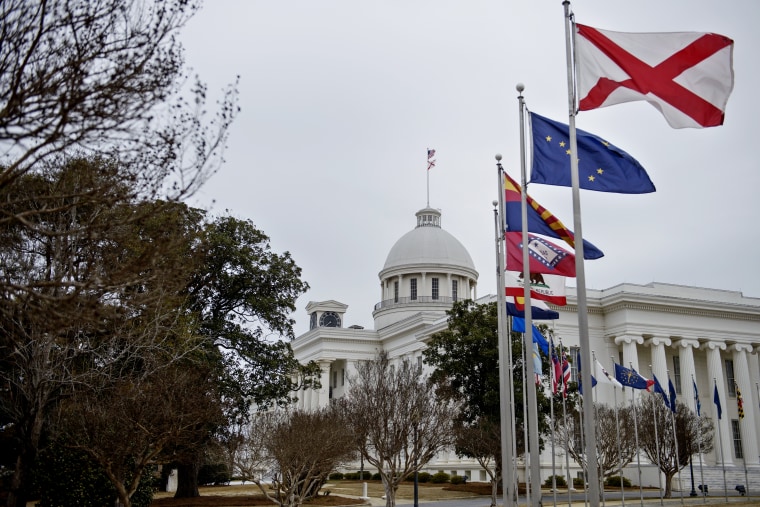In recent years, we've seen plenty of states take on radical anti-abortion legislation, but as regular readers know, the policy adopted by Alabama in May was unusually radical. Today, it was also blocked by a federal judge -- a month before it was scheduled to take effect.
A federal judge on Tuesday blocked Alabama's near-total abortion ban that would have made it illegal for a doctor to perform or attempt an abortion during any stage of pregnancy. [...]The near-total abortion ban bill was designed to challenge more than 40 years of federal abortion protections under Roe v. Wade.The law, which would have called for a sentence of 10 years to life in prison for the abortion provider with no exceptions for rape or incest, was the strictest of several anti-abortion measures enacted this year.
One of the things that makes Alabama's measure extraordinary is its radical simplicity: it simply bans all abortions, at every stage of pregnancy. Women who can prove that a pregnancy puts their lives at risk can get an abortion, but no one else will be legally eligible.
As Rachel noted on the show in the spring, "Rape victims and incest victims -- even juveniles -- as of this bill just passed by the Alabama legislature tonight, they will be forced to give birth against their will, along with any other woman in the state who ends up pregnant by any other means."
Pretty much everyone involved in the fight expected today's outcome for the simple reason that Roe v. Wade is still the existing legal precedent. That said, after Donald Trump and Senate Republicans put Neil Gorsuch and Brett Kavanaugh on the U.S. Supreme Court, and the balance of power shifted even further to the right, conservative lawmakers, including those in Alabama, believed it was time to start pushing the legal envelope.
Indeed, one of the Alabama lawmakers who helped sponsor the state's radical law told NBC News several months ago, "This bill's purpose is to hopefully get to the Supreme Court."
Of course, the strategy is not without risk.
Even radical TV preacher Pat Robertson said several months ago he believes Alabama had "gone too far" by approving "an extreme law."
In context, Robertson, a longtime opponent of abortion rights, seemed to be making a tactical argument. "They want to challenge Roe v. Wade, but my humble view is that this is not the case that we want to bring to the Supreme Court because I think this will lose," he added.
Donald Trump's White House has nevertheless celebrated Alabama's measure, issuing a statement earlier this year cheering the abortion ban and insisting that Democrats support "allowing a baby to be ripped from the mother's womb moments after birth." (Perhaps realizing that this doesn't make physiological sense, the statement was amended to say, "ripped from the mother's womb moments from birth.")
This is, incidentally, the same Alabama policy crafted by a Republican state senator who argued -- in all seriousness -- that rape victims could still get abortions under his policy, just so long as they don't know they're pregnant.
I don't imagine the lawyers defending the law will take this bewildering defense to the 11th Circuit Court of Appeals, which is where this case is now headed.
